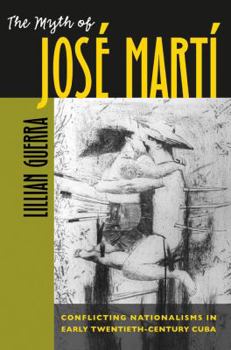The Myth of José Martí: Conflicting Nationalisms in Early Twentieth-Century Cuba
(Part of the Envisioning Cuba Series)
Focusing on a period of history rocked by four armed movements, Lillian Guerra traces the origins of Cubans' struggles to determine the meaning of their identity and the character of the state, from Cuba's last war of independence in 1895 to the consolidation of U.S. neocolonial hegemony in 1921. Guerra argues that political violence and competing interpretations of the "social unity" proposed by Cuba's revolutionary patriot, Jose Marti, reveal conflicting...
Format:Paperback
Language:English
ISBN:0807855901
ISBN13:9780807855904
Release Date:March 2005
Publisher:University of North Carolina Press
Length:328 Pages
Weight:1.05 lbs.
Dimensions:0.8" x 6.2" x 9.2"
Customer Reviews
0 rating





